#DealerNews
Nissan to Keep Closer Tabs on Dealerships in 2021, Retailers Annoyed
After enduring a series of rough years resulting in some unsettling financial reports, Nissan is doing its utmost to turn things around. Following its first annual loss in 11 years, the company announced a plan that would include cutting 20 percent of its global lineup to make way for newer models, eliminating unnecessary production capacity, and cutting corners (and jobs) just about everywhere in order to save $2.8 billion off of fixed costs. This is also being done to make way for a leaner, meaner Nissan, and make room for newer vehicles it believes will be essential to remain competitive.
It’s also hoping to spruce up dealerships to make them more desirable locales for customers ready to do their business. That includes an increased number of factory audits moving into 2021 — partly as a way to make up for the limited number that were conducted this year thanks to the pandemic and partly as a way to make sure nobody is doing anything financially untoward. But there are some concerns among owners that Nissan may end up bullying shops unnecessarily.
NADA to Become Virtual Event Next Year
The National Automobile Dealers Association (NADA) has decided to go digital to combat the coronavirus pandemic, canceling plans for what would have been an in-person event held at the end of January. Plans now include a virtual, mid-week conference starting on February 9th, which organizers agree will be far better than a bunch of people enjoying themselves at the Ernest N. Morial Convention Center in New Orleans over a long weekend.
Truth be told, there wasn’t much of a decision to be made. New Orleans may have decided it’s ready to open up restaurants, retail outlets, and giant shopping centers to the public but trade shows and bars have proven themselves bridge too far. While locals have accused the city of using COVID-19 as an excuse to gentrify certain areas of the city, drunks have a penchant for forgetting social-distancing rules. NADA would have brought in thousands of dealers and vendors, many of whom would be engaged in frequent bouts of close-range talking between beers. That’s to say nothing of the forbidden romantic entanglements (cheating) your author is just going to assume happens.
More Dealer Drama From Cadillac and the China Connection [Updated: Cadillac Responds]
Cadillac told U.S. and Chinese dealers they will each need to invest at least $200,000 on electric vehicle chargers and staff training to continue selling the brand’s products after 2022. The message was communicated to dealerships on Wednesday via video messages from Rory Harvey, the luxury brand’s vice president of sales, service and marketing. Cadillac is moving on electrification (seriously this time) and plans to launch the Lyriq EV within the next two years, with more battery-driven models to follow. Update: Cadillac PR has responded, saying that what was communicated yesterday is for U.S. dealers only.
The brand says dealers must be ready for the transition, giving us flashbacks to Project Pinnacle — the Johan de Nysschen strategy that forced stores to spend money to provide a more premium sales experience that differentiated Cadillac as special. At the time of its implementation, many dealers wondered why they should bother taking on more overhead under the assumption that they’ll make extra money over time. While luxury-specific outlets don’t have much choice in the matter, those selling GM’s other brands in conjunction with Cadillac seem to be substantially less eager to implement the changes.
ID.4 Reservations Begin Next Month for $100; Volkswagen Streamlines Shopping Experience
While North America isn’t receiving Volkswagen’s ID.3, it might have been for the best. The car launched with software glitches that made certain tech functions inoperable and probably wasn’t suited for our market, anyway, according to the manufacturer. But the ID.4 (formerly ID Crozz) crossover is coming here, and promises to deliver a pleasant electric-driving experience and a range of up to 310 miles — assuming you bought the right package and are familiar with the European WLTP cycle.
Volkswagen also wants to use the model to test its new customer experience initiative, which allows shoppers to make reservations online. While the pandemic has encouraged the industry to do more of its business over the internet, the reservation trend was becoming popular ever since carmakers learned that such fees for in-demand models could preemptively line their pockets with cash.
Originally, this was done to ensure customers were serious about buying models produced in limited supplies, or as a way to help startups fund their production efforts ahead of time. It’s now become fairly common, as everyone seems to understand the scam program. In a virtual press conference Thursday, Volkswagen said it would allow parties to reserve the ID.4 next month for a $100 deposit. Duncan Movassaghi, vice president of VW Sales and Marketing, claimed it was the best solution for dealers — and was in line with how people have to live their lives during COVID-19.
AutoNation Ending Aftermarket Collision Parts Division - Shrewd or Crude?
AutoNation’s collision parts division is scheduled to be eliminated by the end of 2020, freeing up some cash after the two-year endeavor proved less than profitable.
Former CEO Cheryl Miller had made it clear that one of her main goals for the company was to ramp up services in an attempt to enhance revenue and diversify the business. But this tactic has proven perilous for the automotive industry at large, often offsetting opportunities to make money with sizable financial risks.
Mobility is probably the best example of this, as its broad enough to encompass everything from self-driving vehicles to subscription models and relies on the market maturing into something that will presumably see returns on investment years down the line. However, AutoNation’s diversification was far more traditional. It seemed like a sure thing, since the collision parts business was forecast to grow over the next five years. In fact, despite being the the largest automotive retailer in the United States, the company actually owes 46 percent of its gross profit to parts and service. Selling cars (both new and used) only accounts for 24 percent — with the rest coming from finance and insurance.
Going It Alone: One-brand-only Jeep Dealers Grow in Numbers
Slowly but surely, a phenomenon is spreading across the United States: standalone Jeep dealerships, as well as Fiat Chrysler dealers with Jeep showrooms.
Located where the buying public is most receptive, these types of stores could play a larger role in the brand’s future, especially as Jeep prepares to add three new models to its lineup next year.
Dealer Inventories Could Take a While to Stabilize
Car dealerships around the nation are reportedly having trouble restocking inventories following the prolonged production shutdowns enacted in response to the pandemic. Despite supply chain issues subsiding a bit, Cox Automotive reported the industry only has a 62-day supply of vehicles. That’s approximately 2.3 million sparkly new units, and would be more than enough to keep consumers happy if people didn’t care which model they drove home. Demand may still be suppressed, but the selective nature of shoppers is not.
For example, you may be able to find a Nissan Rogue (the brand’s biggest seller) without much hassle. But finding one equipped how you wanted may be outside the realm of possibility in 2020, depending upon where you live and the fickle winds of fate. And you could apply that same logic to any number of brands, as most continue to note that some suppliers and assembly lines occasionally have to shut down to comply with health mandates.
Could Virtual Test Drives Transform the Car-buying Experience?
With large hunks of the nation still under varying degrees of pandemic-related restrictions and accompanying panic, auto dealerships haven’t been awash with customers. Many that did reopen have been forced to follow distancing guidelines, frequently limiting the number of people allowed on the premises. Hoping to avoid closing permanently and relinquishing ownership to the bank, they’ve come up with some interesting solutions to keep their clientele interested.
Virtual test drives aren’t exactly new, but they have become an increasingly popular avenue for dealerships hoping to drum up business in 2020. While we’ve seen salespeople giving tours of new product as they hit the lot for years, on-board video is typically reserved for independent review purposes. That’s largely because nobody really expects a fair assessment from the person selling the vehicle. However, with in-person test drives becoming quite difficult, showrooms want to exercise every option they have to draw in customers.
Mark Wahlberg Acquires Another Dealership in Ohio
Automotive retail magnate and part-time actor Mark Wahlberg has obtained another car dealership in Columbus ( which may be renamed “Flavortown”), Ohio.
After having partnered with longtime friend and business associate Jay Feldman to scoop up Bobby Layman (now Mark Wahlberg) Chevrolet in 2018, the duo said they eventually hoped to expand their auto businesses. Feldman already owned a swath of dealerships in Michigan; the friends admitted they were eyeballing additional opportunities in the area.
They did not have to venture far. Wahlberg just purchased Haydocy Buick-GMC, which is right across the street from the Chevy showroom. The site has already been rebranded to include the Hollywood actor’s name and will immediately leverage his star power to reel in customers.
Automotive Retail Jobs Are In Rough Shape
Having already pulverized the dead horse of waning auto sales into a fine paste, we’ll now turn our focus on how it’s impacting employment among automotive retailers — squashing another pony.
Much of the information up until this point has been anecdotal and conditional to the North American response to COVID-19. Furloughs were rampant as the pandemic progressed and new safety rules seemed poised to cripple sales moving forward. There was an obvious general plight confronting automotive retailers, but we couldn’t nail down what that meant in terms of job losses.
We still don’t, frankly. But it is starting to become obvious that there isn’t much reason to be exceptionally optimistic. AutoNation recently announced that around half of the 7,000 workers it furloughed in April won’t be coming back. Despite some retailers claiming not to need such drastic cuts, plenty are following AutoNation’s model. With fewer customers and sweeping restrictions on how showrooms can be operated, there’s little reason for there to be all hands on deck. But just how many will be forced to abandon ship this year?
AutoNation Cutting Roughly 3,500 Jobs
After furloughing staff in response to the coronavirus pandemic, AutoNation has gradually allowed employees to return back to work. Half of the 7,000 people asked to take it easy in April won’t be coming back at all, however.
The automotive retailer has decided to permanently cut 3,500 jobs so it can focus on its bottom line and what it has unsettlingly called “the new normal” — a term frequently used to rationalize unsavory actions taken during the health crisis.
With customers unable to leave their homes to purchase cars, it’s to be expected that America’s largest automotive retailer would need to engage in some light restructuring. It also happens to have the best excuse imaginable for nuking a large portion of its workforce. Back in April, when the AutoNation was furloughing employees, it received nearly $95 million in federal small-business funds via the Payment Protection Program (PPP). A subset of anonymous staff members were said to have leaked the details to the media after deciding the firm was taking cash allocated for smaller outfits.
Outrage ensued and the company sheepishly returned the money.
Michigan Auto Dealers Allowed to Resume Operations Under New Guidelines
Michigan auto dealers will be allowed to resume in-person sales on Tuesday, according to the latest in a long list of executive orders signed by Gov. Gretchen Whitmer. The state, which harbors the fourth-highest coronavirus death toll in the country (following New York, New Jersey, and Massachusetts), has enacted some of the strictest countermeasures in the country.
This has created no shortage of pressure to both reopen Michigan so life/business can return to normal and maintain closures to avoid further contagion risks. Obviously, that’s proven difficult to do. All steps taken towards reopening come with conditions, including those established for Michigan’s dealerships.
But first, some backstory.
Auto Sales Officially Considered 'Essential Service' by U.S. Government
Updated social distancing guidance released by the Department of Homeland Security’s Cybersecurity and Infrastructure Security Agency (CISA) on Friday indicates the automotive industry is now an essential business.
Version 3.0 (for those keeping count) of what constitutes “essential critical infrastructure workers” added a number of job descriptions as the federal government mulls how to restart the U.S. economy. Among them is pretty much every job related to automotive manufacturing and sales.
Reeling From Global Health Crisis, Dealers Embrace Online Sales
Auto dealers and manufacturers around the globe have spent the past several years examining the usefulness of digital car sales, but the practice hasn’t been embraced as warmly in the United States, where state franchise laws often prohibit direct sales from automakers to anybody but a licensed auto dealer. Critics say this allowed retailers to become middlemen that customers are forced to haggle, while advocates explain that the system promotes U.S. jobs and provides a local resource for those needing repairs.
Neither are incorrect, yet dealerships have continued to buck online sales, even after manufacturers attempted to work with them on various pilot programs.
With COVID-19 keeping a large portion of the American population at home, dealers are revisiting online sales as a way to cut their losses. Digital transactions now look to be a necessity if shops hope to survive a prolonged pandemic. While many see this as a temporary measure, once the genie is out of the bottle, he’s difficult to put back inside… and may be far less benevolent than we’d like — even if we’re desperately in need of one of those wishes.
BMW 8 Series Rubbing Dealers the Wrong Way
BMW dealers are having a problem with the 8 Series. The returning flagship appears to be a bit too rich for North American tastes and retailers are growing annoyed.
According to Automotive News, retailers are upset that BMW didn’t issue enough marketing support to make the public aware that it even exists, and feel that the amount of configuration available works against the vehicle. As a result, many dealerships are sitting on expensive halo vehicles nobody seems to want; the 8 Series now has the highest day supply of any BMW model currently produced.





![More Dealer Drama From Cadillac and the China Connection [Updated: Cadillac Responds]](https://cdn-fastly.thetruthaboutcars.com/media/2022/07/10/8899957/more-dealer-drama-from-cadillac-and-the-china-connection-updated-cadillac-responds.jpg?size=720x845&nocrop=1)
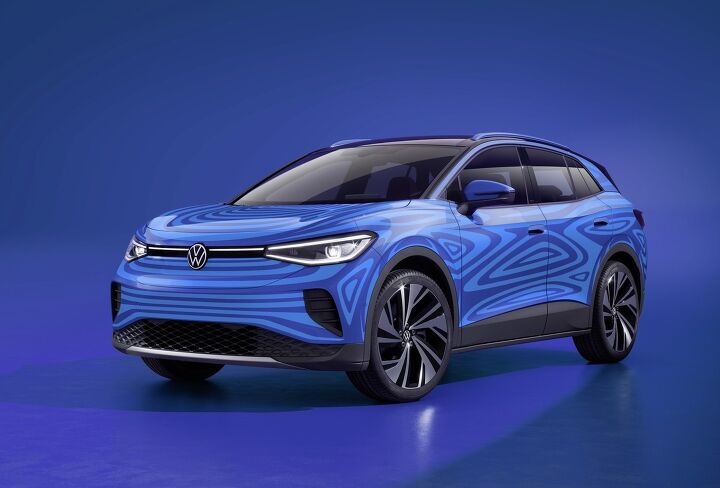
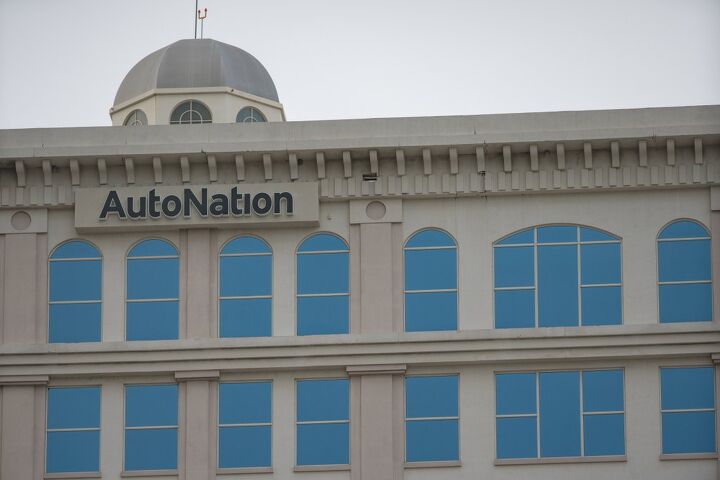





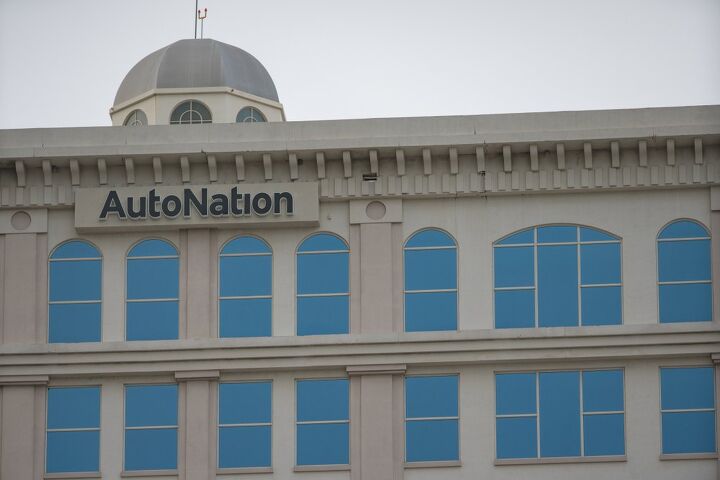

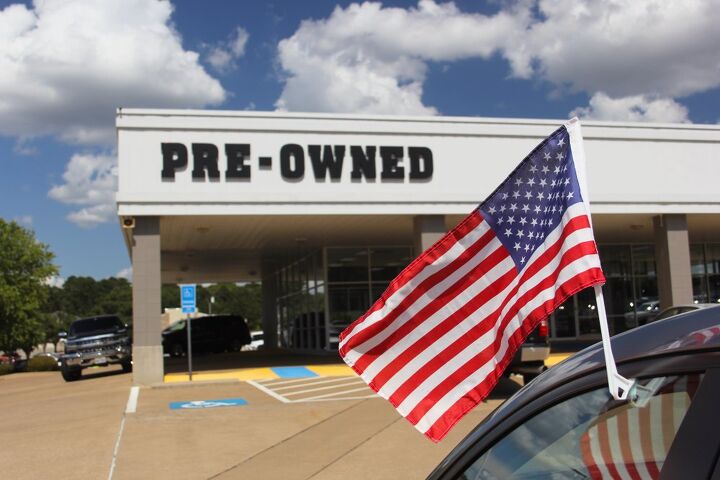

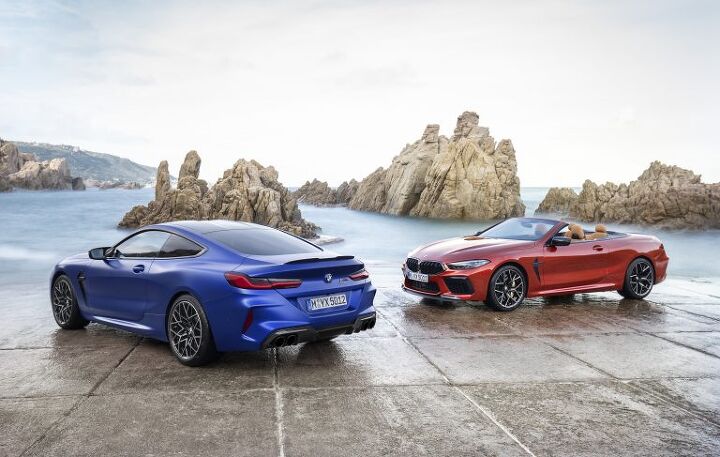












Recent Comments